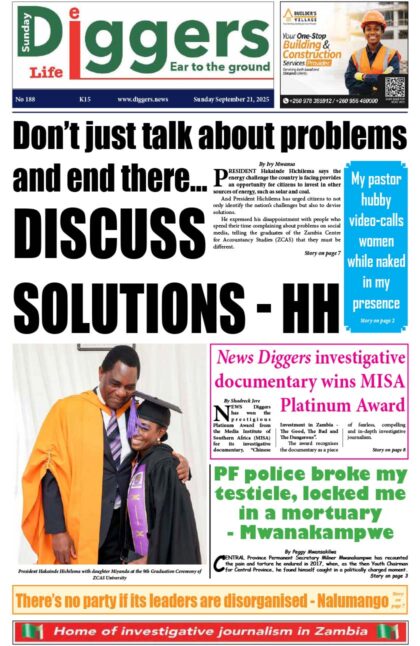In 2017, a social media voice note circulated in Zambia relating toa girl who had boarded a bus one late afternoon headed to Woodlands in central Lusaka. She was headed home after work and was one of the last passengers on the bus, particularly, the only female left. The bus driver and other passengers took turns to rape her. For months following the horrific event, women moved in groups and those who could afford it, avoided buses and used other means of transport. Two months after the crime, two videos circulated of older men in cars with underage girls, offering them food and money in exchange for sex. These stories were not the first or the last to circulate highlighting the scourge of sexual violence Zambian women and girls are subjected to. For as far back as I can remember there have been incidents reported weekly about how women get raped in Zambia. According to research highlighted by Amnesty International, more than one-third (36%) of women aged 15-49 have experienced physical violence at least once since the age of 15 in Zambia.
Before the increased use of social media in Zambia, there was widespread belief that rape was not a problem in the country. It was hardly reported in mainstream media and the few cases that were reported were often not met with any hard consequences from the justice system. With a culture steeped in silence and ‘women and girls being treated like furniture’, the few stories shared were often in hushed tones and treated as family secrets. Today with social media, more and more testimonies are shared surrounding the sexual violence women face in the country, with thousands of women coming out anonymously and publicly about the abuse they have experienced. While other countries have dedicated their resources and time to curb the violence women face in their countries, the Zambian government has done the opposite, with minimal resources allocated to GBV services. Zambia, on average, records over 18,000 GBV cases each year. Many of which don’t make it to trial. Where is the justice?
When we founded the Sistah Sistah Foundation in 2018, our goal was to help young women and girls who were victims of sexual violence. We sought to find out and distribute information about the relevant procedures needed for them to get support and access to justice. We found that victims had to report the case at the nearest police station, get a signed report, before a doctor could attend to them. The police would subsequently have to investigate, and a court date would be assigned. We soon came to understand that the procedure and the lived experienced of victims were two different things. Over 90% of the women we worked with complained about having their cases dismissed by the police, most of them were often, ridiculed, turned away or asked to forgive the perpetrators. Many never heard from the police again. With no police report it meant their chances of having a doctor attend to them were slim to none.
The few victims that managed to get their cases reported, were often sent from pillar to post subjected to run arounds, forced to provide transportation costs to police officers to investigate their cases, and some were even sexually harassed by the same police meant to serve and protect them. For the few that did manage to make it to court, many were forced to endure changed court dates and subjected to waiting years till their trials were heard. Some of the victims who contacted the national legal aid clinic for women, were barely attended to.
To show the extent of existing barriers to justice, in the last three years, SistaSistah Foundation has worked with over 900 women directly, and only two cases have made it to court.
Zambian women and girls have been left to fend for themselves in their quest for justice. The Zambian government has failed to address and tackle the national crisis that is sexual and gender-based violence. Zambia has often boasted about being a peaceful nation, but how peaceful is a nation when according to Save the Children, every three hoursa child is defiled in Zambia, and many women panic once the clock hits 5pm? Who is experiencing this peace?
Zambian women are tired, we too would like to experience the peace and safety that is afforded to men and that’s why we are marching on Saturday September 11, 2021, in Lusaka and Kitwe. We came out in our masses on 12 August2021 to elect a new government and a month later we will be calling on President Hakainde Hichilema and his newly elected government to stand up for women. We are raising a call to action that the safety and well-being of Zambian women be prioritized. That Zambia must cease to be a haven for perpetrators. We are calling on the government of Zambia toensure that women and girl survivors have access to police protection and justice, as well as to shelters, helplines, and community-support services, including by designating these as essential services and ensuring they receive the necessary support and resources to continue operating.
Ann Holland is a Zambian Human Rights Defender, Feminist, and co-founder of the SistahSistah Foundation. The SistahSistah Foundation is a grassroots feminist NGO that seeks to further the rights of women, children and minorities through gender equal programmes created to educate, empower and protect the groups they work with. Her Twitter handle: @DonCorleANNand the SistahSistah Foundation Twitter handle: @Sistahsistahfo1
























